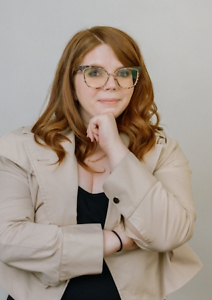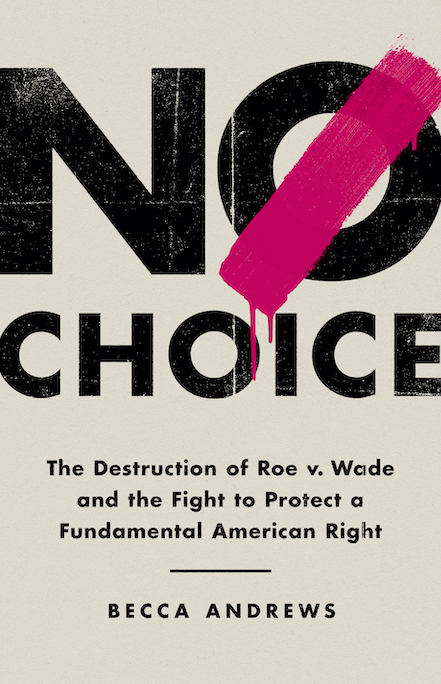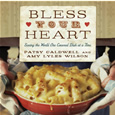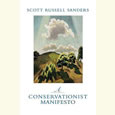Making Sunshine, Nurturing Change
Acclaimed children’s author Renée Watson talks about inspiration, collaboration, and activism
Coretta Scott King Award winner and Newbery Honor author Renée Watson has written across the entire spectrum of children’s and young adult literature. Her 2017 YA novel, Piecing Me Together, was recently optioned for a film adaptation. Her newest novel, Ways to Make Sunshine, is her first book for the chapter book-reading elementary set and comes complete with spot illustrations from artist Nina Mata.
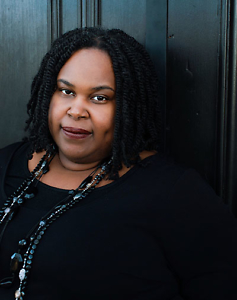
Ways to Make Sunshine features the irrepressible Ryan Hart, a Black girl living in Portland, Oregon, who navigates fourth grade and works hard to stay upbeat after her father is laid off from his post office job. The book has received stellar reviews and is the first in a series, so fans of the book can expect even more engaging stories about Ryan and her family.
Chapter 16 talked with The New York Times bestselling author via email to ask about the new book, her three productive years with the I, Too Arts Collective in Harlem, and more.
Chapter 16: Ryan Hart, the protagonist of Ways to Make Sunshine, has been compared to Ramona Quimby more than once. Does that have any special meaning to you? As a child, did you read Beverly Cleary’s books?
Renée Watson: Yes, I grew up reading the Ramona series (and all of Beverly Cleary’s books). The setting of those books is Portland, which is where I grew up. Those books were special to me because I knew the names of the streets and related to Ramona’s world in a very specific way. I loved that there was a character who lived in my hometown.
It means a lot to me when people compare Ramona and Ryan. Both characters are dealing with the financial strains on their families, and they are both navigating relationships with older siblings and old and new friends. Ramona was definitely an inspiration for Ryan’s determination and strong will. They aren’t fragile girls — or perfect girls. They both make mistakes and are figuring out who they are in a society that has a lot of expectations of girls.
Chapter 16: Speaking of Portland, you have often written about and spoken about (including in your 2018 Coretta Scott King Award acceptance speech) your love for that city. Books like Ways to Make Sunshine, last year’s Some Places More Than Others, and the award-winning Piecing Me Together shine a spotlight specifically on the Black community in Portland. What has it been like for you to read about the protests and unrest happening there in recent weeks?
Watson: I am very sad and angry over what’s happening in Portland right now. Portland is home for me, and I have such love for that city. But it is a complicated place. My hope is that Black leaders in Portland who have been fighting for social justice for decades are listened to, valued, and centered during these times.
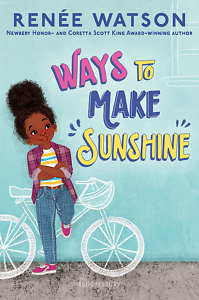 Chapter 16: Last year, you collaborated with author Ellen Hagan on the novel Watch Us Rise, and in 2018, you worked with Ilyasah Shabazz, the daughter of Betty Shabazz and Malcolm X, on Betty Before X. What do you love most about collaborating with other authors?
Chapter 16: Last year, you collaborated with author Ellen Hagan on the novel Watch Us Rise, and in 2018, you worked with Ilyasah Shabazz, the daughter of Betty Shabazz and Malcolm X, on Betty Before X. What do you love most about collaborating with other authors?
Watson: Writing is very isolating, so one of the things I enjoyed most was having someone to create with. I love that we were able to bounce ideas off of each other and offer immediate feedback to figure out what wasn’t working or to build out the plot. I also loved sharing the work together. Being out on the road for book tours and events can be exhausting and lonely sometimes, so it was great to have a partner to enjoy the moments with.
Chapter 16: You are an activist, as well as an author. As you state on your website one of your passions is “using the arts to help youth cope with trauma and discuss social issues.” Do you think the most recent Black Lives Matter protests across the country and the national conversation about racial injustices in America will change children’s book publishing for the better?
Watson: I’m cautiously hopeful that change will come to children’s book publishing. Change ebbs and flows and, while I know we’ve come a long way, I recognize there is still so much work to do. I think this will be constant: steps forward, steps backwards, steps forward, and so on. I have the most hope when it comes to parents and educators seeking out diverse books, widening the canon, and having conversations with young people about being anti-racist.
When it comes to the publishing industry, I hope that the industry becomes more intentional about recruiting and hiring practices when it comes to agents, editors, and marketing and publicity teams. For so long there’s been a push to publish diverse voices, which of course should be a priority, but what good does it do to bring in diverse voices, specifically Black voices, if those voices are stifled, underappreciated, or misrepresented? We need publishing to commit to valuing Black voices in all aspects of our careers — from fair advances, to a thoughtful and rigorous editorial process, to creative and culturally relevant marketing plans. I do think there’s a reckoning happening in children’s book publishing, and I hope this is not a short trend but that there is long-term sustainability to some of the new initiatives that are happening.
Chapter 16: Sadly, the I, Too Arts Collective had to close its doors last year — that is, the group’s physical space in the Harlem brownstone where Langston Hughes once lived. I, Too was your vision, and you and your team did the dynamic work of promoting underrepresented voices in the creative arts. Other than updates to the website, does the work of I, Too carry on in other ways? What was the most satisfying part of everything that I, Too accomplished in its three years at that space?
Watson: Building the I, Too Arts Collective with such brilliant and generous authors, artists, and activists is work I will be forever proud of. It’s so hard to name the most satisfying part, but I can say that every time we did a program for young people, I really saw in a tangible way the importance of the work we were doing. I was so inspired by the children and teens who would write their truths and share them with the community. I loved watching them learn about Langston and other poets who came before them. It was so powerful to witness the next generation of writers finding their voices.
In honor of the work of the collective, I, Too Arts developed a partnership with the Highlights Foundation to establish a scholarship for a Black writer identifying as a woman. The scholarship includes full tuition to a qualifying Highlights Foundation workshop and assistance toward traveling expenses. This year, we were able to award the scholarship to three women. We also partnered with the Highlights Foundation to host a retreat for Black women writers. Our plan was to have it in September 2020, but we had to postpone it for a future date because of the pandemic. These programs are a way for us to still nurture underrepresented voices, and I’m very grateful for the generosity of the Highlights Foundation to make these initiatives possible.
Chapter 16: How do you stay motivated and inspired during this time of social isolation?
Watson: I have to say, it’s been really challenging to be motivated and inspired during this time — not only because of the social isolation, but the recent murders of Black women and men have impacted me greatly. I have been reading and rereading poets and writers who left us their words for comfort and guidance. The poems of Margaret Walker, Lucille Clifton, and Maya Angelou have especially fortified me. And I’ve been watching old interviews of James Baldwin, Toni Morrison, and Nikki Giovanni. These literary giants offer such wisdom that is very relevant to the times we are living in.
Chapter 16: Ways to Make Sunshine is a series opener. Can you give readers a hint as to what Ryan might be up to next?
Watson: The next book in the series will be published in April 2021. The story picks up right where we left off, with school letting out for summer. Ryan faces a few challenges at a church camp, as she continues to figure out the new friendship dynamic with KiKi, Amanda, and Red. She’s also getting more and more excited for her baby sister to arrive.
Chapter 16: What’s next for you?
Watson: My next young adult novel, Love is a Revolution, will be out February 2021. It’s a love story that’s not only about romance, but about how to show radical love to the people in your life, including to yourself.

Julie Danielson, co-author of Wild Things! Acts of Mischief in Children’s Literature, writes about picture books for Kirkus Reviews, BookPage, and The Horn Book. She lives in Murfreesboro and blogs at Seven Impossible Things Before Breakfast.
